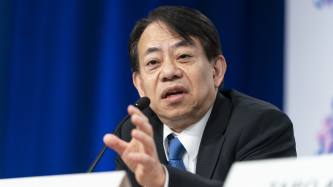Sri Lankan finance minister Ravi Karunanayake’s frustration was obvious at the Asian Development Bank (ADB) annual meeting in Frankfurt in May. He was frustrated with the poor economic fundamentals left by the previous government; with the conditionalities attached to the newly approved $1.5bn International Monetary Fund (IMF) loan; and with advanced economies refusing to share information on potentially dubious money being funnelled out of the country.
When former president Mahinda Rajapaksa lost presidential elections to reformist Maithripala Sirisena in January 2015, Sri Lanka’s economic fundamentals were indeed weak. Between 2005, when Mr Rajapaksa took office, and when he stepped down in 2015, Sri Lanka’s gross domestic product (GDP) growth dropped from 6.2% to 4.5%, and net government borrowing skyrocketed from a deficit of SLRs156.75bn ($1.05bn) to SLRs692.97bn. In 2015, the fiscal deficit hit 7.4% of GDP – a key concern for the medium term, according to the IMF. And central government debt to GDP sat at 74.3% (as of 2014). About 40% of overall government debt is denominated in foreign currency.











